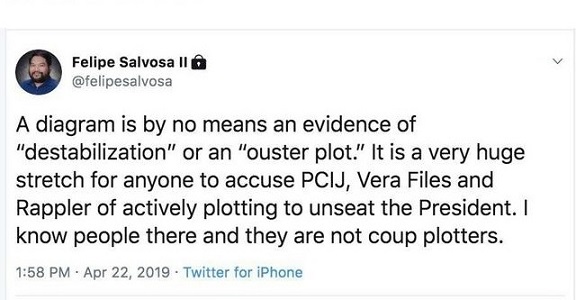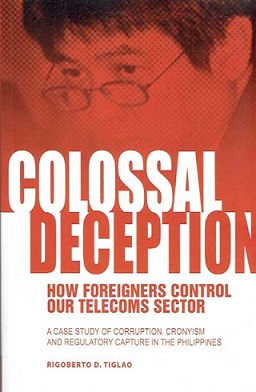As long as we have journalists like Felipe Salvosa II, the likes of Bobi Tiglao don’t matter.
Salvosa provided a much-needed silver lining last week at the time when dark clouds of lies threatened to overwhelm the public pre-occupied with the business of surviving.
Until last week, Salvosa was Manila Times managing editor. He was fired for voicing his reservations about the story his newspaper was putting out.

I’m using the word “fired” because he himself admitted that he was asked to resign by management over his tweet posted early afternoon of April 22 which said: “A diagram is by no means an evidence of ‘destabilization’ or an ‘ouster plot.’ It is a very huge stretch for anyone to accuse PCIJ, Vera Files and Rappler of actively plotting to unseat the President. I know people there and they are not coup plotters.”
